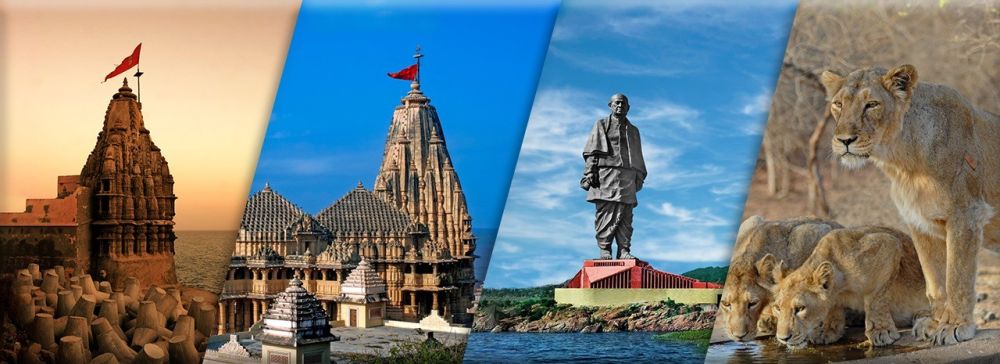

Tourism in Gujarat has its roots in both its rich cultural heritage and diverse natural landscapes. The region is historically significant with ancient civilizations like the Indus Valley having flourished here. The modern state of Gujarat was created in 1960, and since then, it has been actively promoting its tourism sector.
The history of tourism in Gujarat traces back to the time of the Indus Valley Civilization, with the archaeological site of Dholavira offering insights into early urban planning. Religious tourism has also been long-standing because of the sacred sites like Dwarka, one of the Chardham’s and the Jyotirlinga at Somnath.
In the medieval and late medieval era, Gujarat became famous for its trade and commerce as it was a major port area during the Mughal period. Historic markers like the Sabarmati Ashram, which played a pivotal role in India's struggle for independence under Mahatma Gandhi, and the architectural wonders like Rani Ki Vav, stand as a testament to this period.
The establishment of the Gujarat Tourism Development Corporation in the 1970s marked a strategic move to organize and promote tourism in the state professionally. With a focus on improving infrastructure and facilities, the state has developed numerous sites of interest to attract domestic and international tourists.
Gujarat's Rann Utsav, a cultural festival held annually in the white salt desert of the Kutch region, showcases the folk dances, music, crafts, and food of Gujarat, becoming a signature tourism event. Similarly, the International Kite Festival has been inviting kite enthusiasts from around the world to participate in this colorful event each January.
In recent years, Gujarat has seen a rise in experiential tourism. Tourists are looking for authentic experiences beyond the traditional sightseeing tours. They participate in local festivals, workshops on traditional arts and crafts, and food tours that allow them to experience the region’s culture intimately.
Eco-tourism has also gained popularity, with initiatives to preserve and showcase Gujarat’s diverse ecosystems—be it the marine national park in the Gulf of Kutch or the conservation reserves for birds like the Nalsarovar Bird Sanctuary.
Moreover, Gujarat has been investing in smart tourism, incorporating technology to enhance visitor experiences. The introduction of mobile applications and virtual tours, especially during the Covid-19 pandemic, has been part of this tech-forward approach.
In conclusion, Gujarat's tourism has evolved from its historical and cultural roots to a multifaceted sector catering to a variety of tourist interests. With its array of offerings from wildlife safaris and spiritual tours to cultural festivals and eco-tourism, Gujarat continues to be an appealing destination for travelers worldwide.